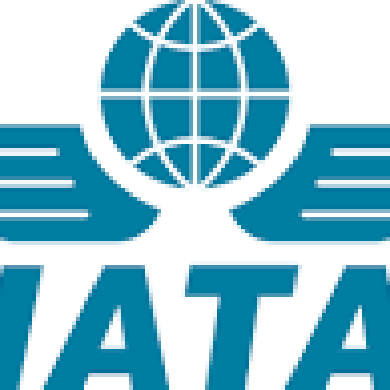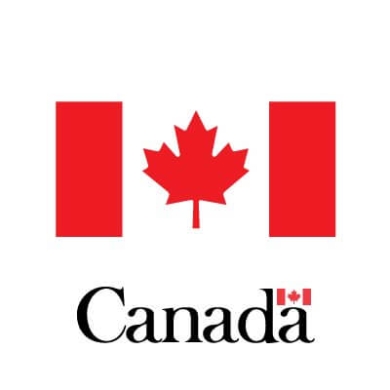14 mai 2020
15 février 2020 | Local, Technologies propres, Méga données et intelligence artificielle, Fabrication avancée 4.0, Systèmes autonomes (Drones / E-VTOL), Conception et essais virtuels, Fabrication additive
SOSCIP Call for Proposals
Hello Members of the SOSCIP Community,
Since 2012, SOSCIP has been Canada's leading R&D consortium dedicated to harnessing advanced computing to drive industry innovation. Our mission is to bring together industrial partners and academic researchers and provide them with advanced computing technologies and expertise to solve social, technical and business challenges.
Thanks to your sustained support, SOSCIP has built an advanced ecosystem that is integrating state-of-the-art technologies alongside highly qualified personnel (HQP) trained to leverage those technologies and drive Ontario companies to the forefront.
We are very excited to announce that SOSCIP is launching two new HPC platforms to meet the rising demand for GPU-Acceleration and Parallel-CPU access among the SOSCIP community.
Highlights of the two systems are below and you can read the full description of the platforms on our webpage:
GPU-Accelerated Platform
The new SOSCIP GPU-Accelerated Platform is a high-performance GPU cluster powered by NVIDIA Tesla V100 GPUs and IBM Power9 CPUs. Mist is a collaboration between SOSCIP and SciNet, which consists of a total of 54 IBM AC922 servers each with 2×16 core Power9 GPU and 256GB RAM. Each compute node has 4 NVIDIA Tesla V100 GPUs with 32GB of RAM and CUDA capability 7.0 (Volta).
This platform supports AI, Machine Learning and Deep Learning frameworks and has the capability of accelerating Molecular Dynamics codes (NAMD, Gromacs, etc.) and other computationally intensive applications in computational chemistry, geophysics, next generation sequencing and astronomy.
Parallel CPU Platform
The new SOSCIP Parallel-CPU platform is a homogeneous high-performance system attached to the SciNet supercomputer Niagara, which is designed to enable large parallel jobs in order to optimize throughput of a range of scientific codes running at scale, energy efficiency, and network and storage performance and capacity. Each compute node (based on Lenovo SD530 server) has 40 Intel Skylake/Cascade-Lake cores with 202GB (188 GiB) of RAM.
The platform is an ideal system for running parallel code that cannot obtain cost-efficient speedup through GPUs, such as Computational Fluid Dynamics codes (OpenFoam, Nek5000, etc) and Quantum Chemistry codes (VASP, CP2K, etc).
Apply now! SOSCIP supports collaborative R&D projects that involve academic and industry researchers working together to solve challenging problems using SOSCIP's compute platforms. Download our application template and apply for priority access on these new platforms by March 6, 2020.
For more information, please contact either Andrew Jones at andrew.jones@soscip.org or Amy Hackney at amy.hackney@soscip.org for advice and guidance in completing your application. We are happy to discuss and review all draft proposals ahead of the priority application deadline.
We look forward to seeing what you can do with these amazing new systems!
Best regards,
Tibor
Tibor Turi, Ph.D. P.Eng.
Executive Director | SOSCIP
Sur le même sujet
-

-

14 mai 2020
Fonds d’aide et de relance régionale
De Développement économique Canada pour les régions du Québec Appui aux entreprises et organismes du Québec touchés par la pandémie de COVID-19 En complément au Plan d'intervention économique du Canada pour répondre à la COVID-19, le gouvernement du Canada a mis en place le Fonds d'aide et de relance régionale (FARR), une initiative dotée d'une enveloppe de 211 M$ pour le Québec. Un financement adapté aux besoins des entreprises et des organismes d'ici Au Québec, le FARR est mis en œuvre par DEC. Il propose : un appui financier aux PME vulnérables qui ne sont pas admissibles aux mesures déjà mises en place et qui sont aux prises avec des difficultés de liquidités. une aide aux entreprises et aux organismes en leur donnant un accès indispensable au capital dans les communautés rurales desservies par les Sociétés d'aide au développement des collectivités (SADC) et les Centres d'aide aux entreprises (CAE). Consultez les détails du programme ou notre foire aux questions pour en savoir plus sur les modalités du FARR. Pour faire une demande de financement Si votre entreprise ou votre organisme n'a pas accès à l'aide fédérale déjà en place, identifiez d'abord le profil qui correspond le mieux à votre situation : Profil 1 Entreprises ayant un chiffre d'affaires de 250 000 $ et plus dans les secteurs suivants : Secteur manufacturier Services à valeur ajoutée (savoir-faire distinctif, offre de service innovante – p. ex. : production de contenus numériques, technologie, intelligence artificielle, contribution à la transition technologique ou à l'économie verte) Entreprises touristiques nécessitant un financement de 40 000 $ et plus Entreprises en démarrage à fort potentiel dans les secteurs manufacturier et de services à valeur ajoutée OBNL à vocation économique qui œuvrent dans les secteurs ci-dessus, ou qui appuient les entreprises dans ces secteurs Cela décrit votre situation? Confirmez votre préadmissibilité en répondant à 5 questions Profil 2 Entreprises ayant un chiffre d'affaires de moins de 250 000 $ dans les secteurs manufacturier et de services à valeur ajoutée Entreprises en démarrage (autres que dans les secteurs manufacturier et de services à valeur ajoutée) Entreprises touristiques nécessitant un financement de moins de 40 000 $ Commerces de détail, services de proximité, services professionnels et de santé (p. ex. : restaurant, boulangerie, dépanneur, salon de coiffure, maison funéraire, nettoyeur, concessionnaire automobile, magasin à grande surface, services comptables ou juridiques, dentiste, services immobiliers) Entreprises d'économie sociale (tous secteurs) Agriculture et pêches (cueillette et récolte) Entreprises de production artisanale et produits du terroir Travailleurs autonomes et entreprises individuelles (tous secteurs) Cela décrit votre situation? Si vous êtes à l'extérieur d'une région métropolitaine : Si vous êtes à l'intérieur d'une région métropolitaine :... ... Si vous êtes à l'extérieur des régions métropolitaines : communiquez avec votre SADC ou votre CAE. Si vous êtes à l'intérieur d'une région métropolitaine : composez le 1-800-561-0633. Vous n'êtes pas certain quelle situation s'applique à vous? Si votre entreprise ou organisme est domicilié au Québec, composez le 1-800-561-0633 ou envoyez-nous un courriel. Nos conseillers pourront vous guider. https://dec.canada.ca/fra/appui-cible/farr/index.html
-

17 septembre 2021
Les brèves de l'actualité | 13 septembre 2021
Les brèves de l'actualités vous sont partagés par le Programme Accélérateur 360 - cliquer sur le document pour y avoir accès https://www.aeromontreal.ca/accelerateur360.html